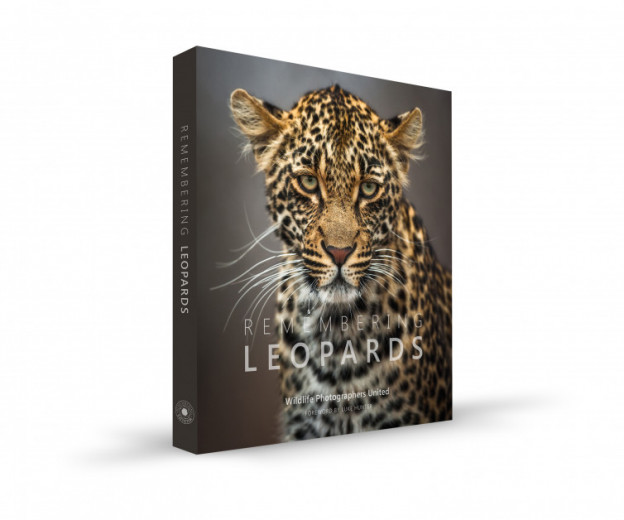Sarah Kingdom reviews Remembering Leopards, produced by wildlife photographer Margot Raggett to support her conservation charity.
Remembering Wildlife is the collective name for a series of stunningly visual, hardback coffee table books created by British wildlife photographer Margot Raggett, who in 2014 began asking fellow wildlife photographers if they would contribute to a fundraising book for animal conservation. Their response was unanimous and the first book in the series, Remembering Elephants, was published in 2016, with images donated by some of the world’s top wildlife photographers.
At the time, Margot thought the book would be a one-off, but every year since, Remembering Wildlife has produced a photo book dedicated to a different, endangered animal, capturing its beauty in images from across the globe. In this year’s edition, the leopard takes centre stage.
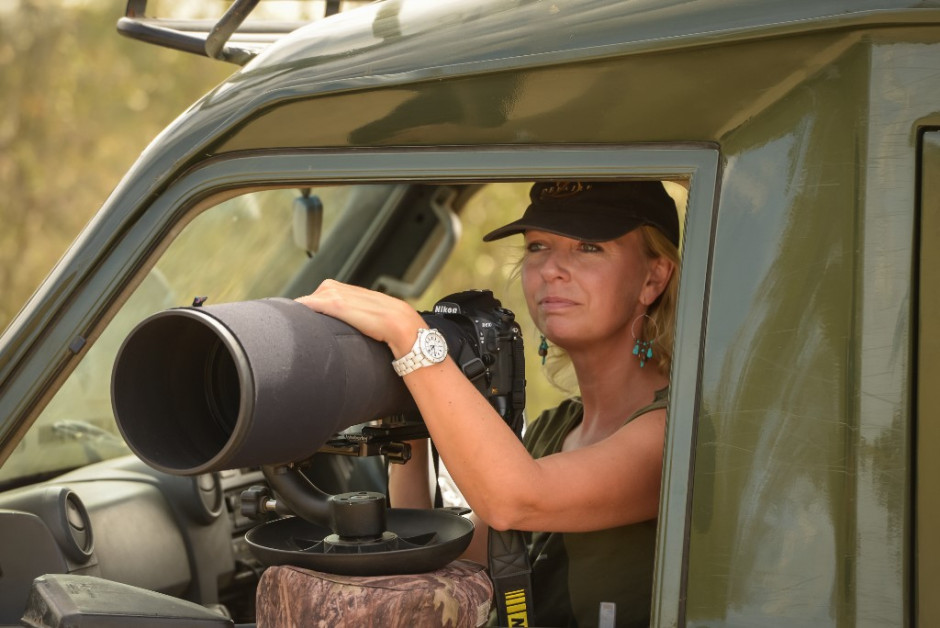
Remembering Wildlife exists to raise awareness of the plight facing wildlife and to raise funds to protect it. Since Remembering Elephants in 2016, more than 230 of the world’s best wildlife photographers have contributed to the Remembering Wildlife series. More than 37,000 books have been sold, and over £1.078 million has been distributed to 68 conservation projects in 31 countries.
A crowdfunding appeal to produce Remembering Leopards, the latest edition in the wildlife book series, broke all previous records for this now popular project. The campaign launched on April 1, 2023 and smashed its minimum target of £20,000 in just four minutes Within the first day, supporters had pledged more than £100,000, making Remembering Leopards the fastest funded of all the books in the series to date.
Meet Panthera pardus, the scientific name for leopards. There are eight species of leopard – African, Amur, Arabian, Indian, Indochinese, Javan, Sri Lankan and Persian. Leopards are the most versatile and adaptable of the big cats, but despite this adaptability, their global population and distribution is sadly in decline. They have lost 75% of their historical distribution and are now believed to be extinct in only 23 of their 85 original range countries.
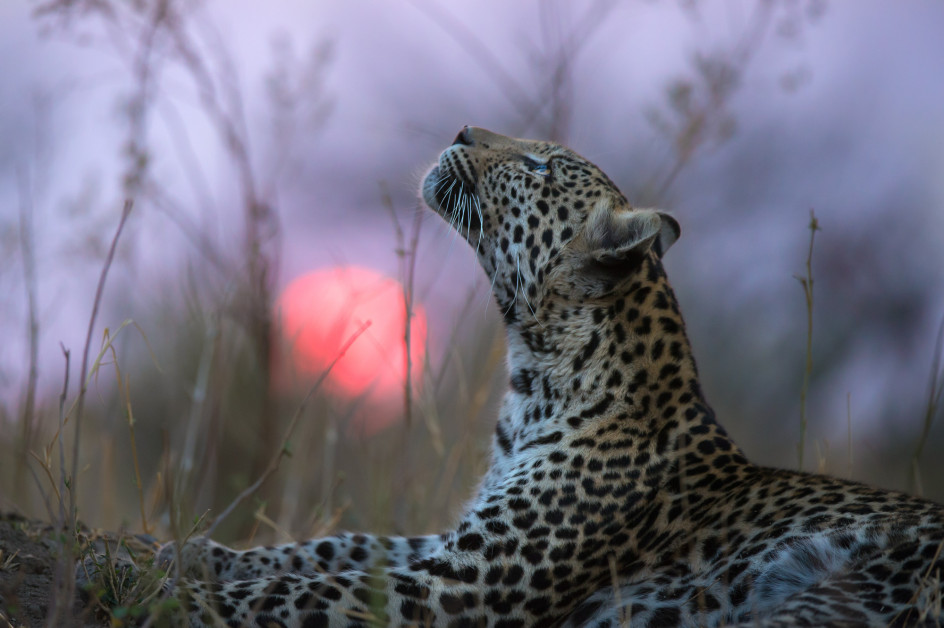
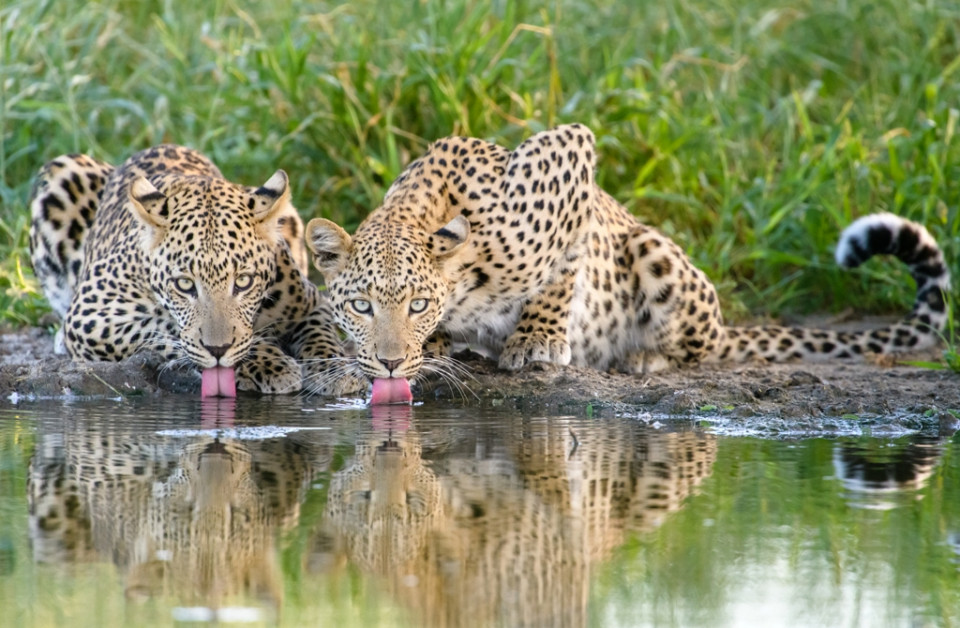
Almost all leopard populations are decreasing, the only exception being the Amur leopard (the world’s rarest cat), which is found in the far east of Russia and China, and whose habitat, thanks to concerted conservation efforts, has roughly tripled since the beginning of the century.
Margot believes that showcasing beautiful images of leopards will raise awareness of their plight and capture the public’s attention. “We need people to see what we might lose if conservation efforts aren’t successful,” she says, “photography is a great way to do that.” She goes on, “our mission is not only to celebrate leopards but to raise urgent awareness that they are in decline and to raise funds for those working to protect them.”
Over 50 wildlife photographers have contributed to Remembering Leopards, as their way of giving back to one of the species they make their livings from by photographing. The book is a collection of 80 stunning colour photographs, taken by some of the world’s top wildlife photographers, including Marsel van Oosten, Art Wolfe, Frans Lanting, Greg du Toit, Michael Poliza, Maasai Mara-based Jonathan and Angela Scott, as well as award-winning conservation photographers Neil Aldridge and Suzi Eszterhas. This year’s cover image was taken by Mark Dumbleton.
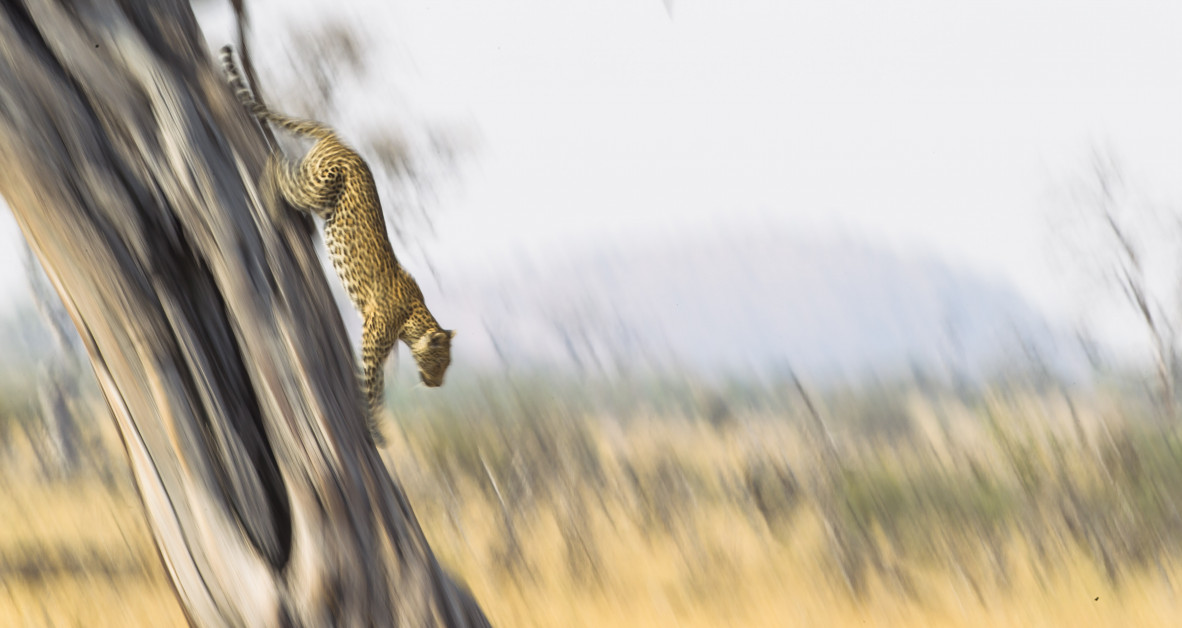
Not all of the photographers featured are as well-known. Remembering Wildlife ran a photographic competition where around 3,500 images were submitted, from which they chose 20 images to add to those selected from the more known photographers. Friend and photographer Jany Addey from the UK was one of these competition winners, and says “For me, it is a privilege to be part of such an amazing project. Leopards are my favourite animal and I love to photograph their beauty but also their movement and behaviour. To have one of my photos in this fundraising book was a photographic highlight, which also helps to raise money for conservation”
The foreword for Remembering Leopards is written by Dr Luke Hunter, Executive Director of Big Cats Program, Wildlife Conservation Society, who says, “Remembering Leopards reminds us of what is at stake. When you look upon the glorious cats on these pages, be assured that it is not too late to save them. Don’t let Remembering Leopards become an epitaph.” The afterword of the book is by TV show ‘The Big Cat Tales’ Jonathan and Angela Scott, who liken the “allure and beauty” of leopards to “as if the Gods had smiled on you”.
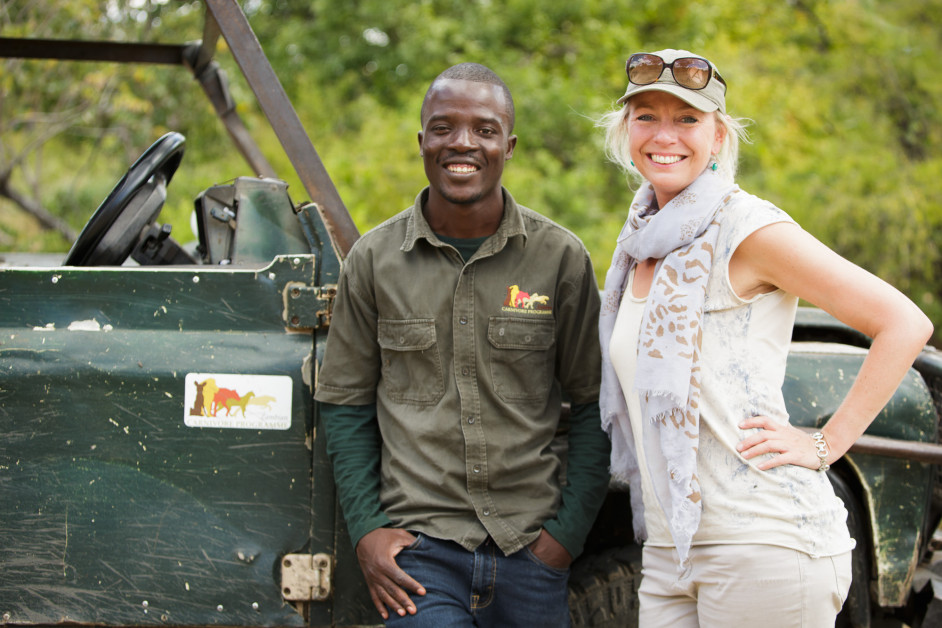
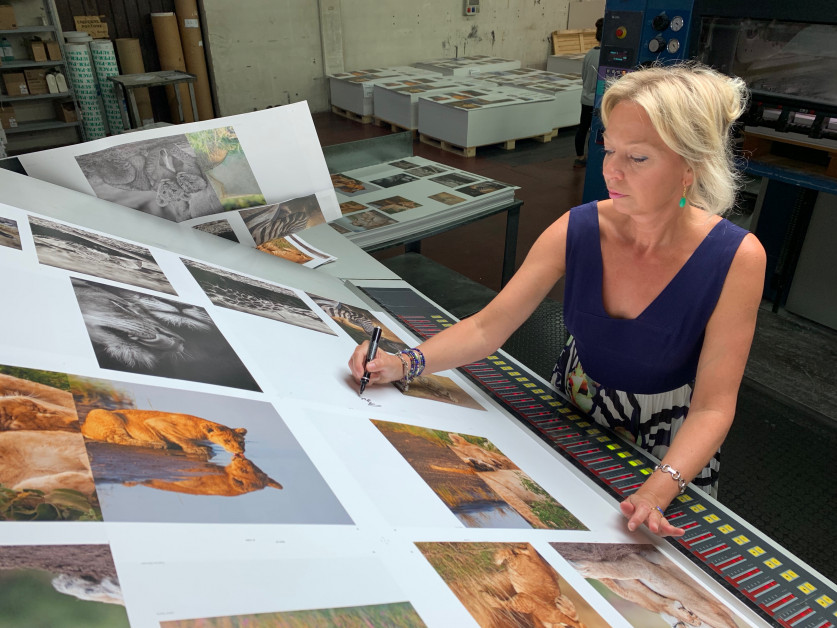
Unlike many other fundraising organisations, Remembering Wildlife is run as a business, not a charity, though they are fully registered with the Fundraising Regulator. Money is predominantly raised through the selling of books, and through exhibitions and events. Unlike most charity models, Remembering Wildlife doesn’t ask for donations (although they’ll certainly accept them if offered!), they are in the business of selling something beautiful, and then promising that 100% of the profits will go to conservation projects.
The first donation from Remembering Leopards has already been made, to Wildlife Conservation Society (WCS) in Afghanistan, which has been working to protect snow leopards since 2006. Because of the political situation in Afghanistan, WCS had recently lost the bulk of its core funding and Remembering Wildlife has been able to give them an emergency grant to carry on, and to fund the ongoing employment of eco-guards, selected from local communities in Wakhan National Park.
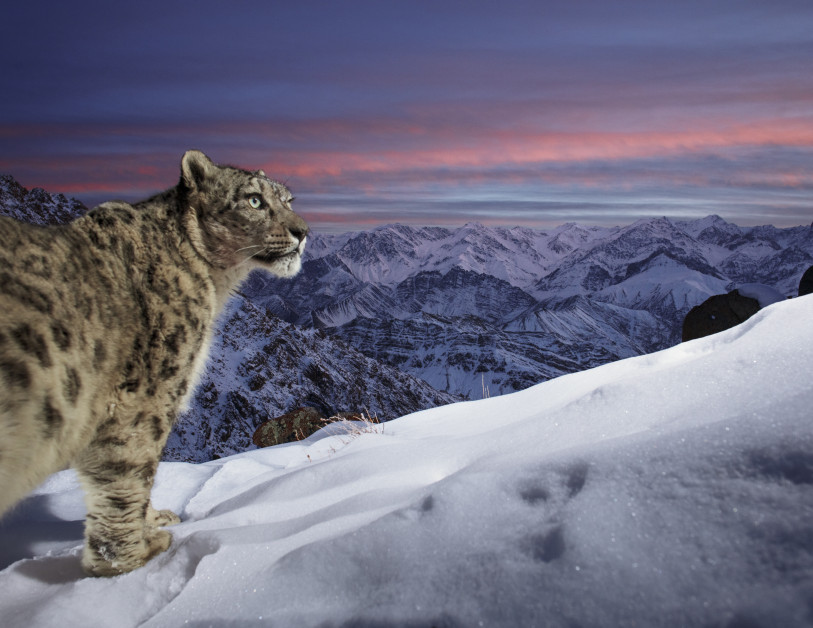
The funds have also been used to counter human-wildlife conflict, by providing predator-proof corrals to house livestock and by educating local communities on other protective measures. “It’s about persuading the local community not to retaliate against animals … and enabling them to live alongside them,” explains Margot.
Leopards may well be the most adaptable of the big cats, but their population numbers and distribution range are still very much under threat. Help save a spot for them in this rapidly changing world by purchasing a copy of Remembering Leopards.
Images (C) Damiel Naurort, Hannes Lochner, James Gifford, Margot Raggett and Sacha Fonseca.
Tell me more about Remembering Leopards
Further information about Remembering Wildlife can be found here.
To find out more about the projects that Remembering Wildlife has already funded click here
Each book costs £49.50 GBP ($60 USD) and copies can be ordered through www.rememberingwildlife.com.
UPDATE:
Nine years and nine books later, Remembering Wildlife has grown to be a global phenomenon and in 2023, Margot Raggetts’s dedication to the project was recognised with an MBE in the King’s Birthday Honours List, for her contributions to international wildlife conservation.
The latest book in the series, Remembering Tigers, is hot off the press.
Tigers, the largest of the big cats, are found from the dense forests of India, to the vast snow-covered landscapes of Siberia. Despite their versatility, tigers are threatened by habitat loss, illegal hunting, and retaliation for attacks on humans and livestock. Tigers are the least numerous of the big cats and are confined to just 10% of their historical range. Listed as endangered by the International Union for Conservation of Nature (IUCN), there are only around 5,500 remaining in the wild.

For wildlife enthusiasts and conservation supporters alike, Remembering Tigers is a must-have. The photographs in the book are more than art, they’re a testament to the resilience and beauty of tigers. They drawing us into the lives of these extraordinary creatures and remind us of what’s at stake. Remembering Tigers is not just a celebration of one of nature’s most iconic animals, but a rallying cry to protect it for generations to come.
Unlike most charity models, Remembering Wildlife doesn’t ask for donations (although they’ll certainly accept them if offered!), they’re in the business of selling you something beautiful and promising that 100% of the profits will go to conservation. Further information about Remembering Wildlife can be found here. To find out more about the projects that Remembering Wildlife has already funded click here. Each book costs £49.50 GBP ($60 USD) and copies can be ordered through www.remembering wildlife.com.

